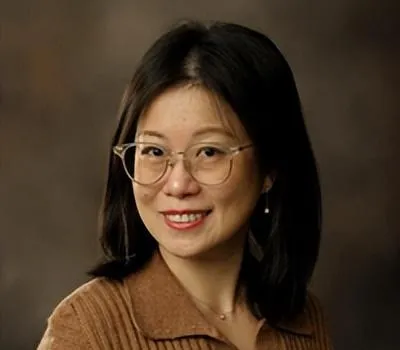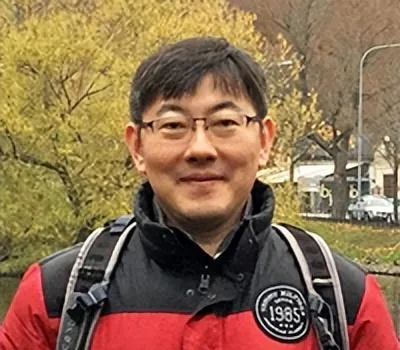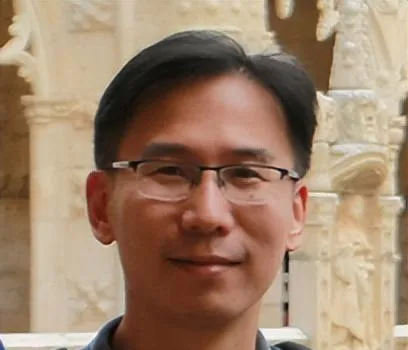
1月17日,國際電腦學會(Association for Computing Machinery,ACM)公布了2023年度傑出會員(ACM Distinguished Members)名單,全球共有 52 名學者獲此殊榮。
ACM創立於1947年,是世界上第一個科學性和教育性的電腦學會,也是目前全球最大的電腦領域學術組織,在190多個國家和地區擁有超過10萬名會員,其所評選的圖靈獎(ACM Turing Award)被公認為是電腦領域的最高獎項。ACM傑出會員表彰那些在過去10年中擁有至少15年專業經驗和5年專業會員資格的ACM會員,他們取得了重大成就,或對電腦領域產生了重大影響。
入選華人學者簡介
Kai Chen 現為香港科技大學電腦科學與工程系教授、智能網絡與系統實驗室(iSING Lab)及微信-科大人工智能技術聯合實驗室(WHAT Lab)主任,香港人工智能與機器人學會(HKSAIR)常務副會長。
他分別於2004/2007年在中國科學技術大學(合肥中國科技大學)獲得學士/碩士學位,並於2012年在美國西北大學獲得電腦科學博士學位。
他目前的研究興趣包括數據中心網絡、機器學習系統和私密保護計算。
他的作品已在SIGCOMM、NSDI、OSDI和TON等多個頂級場所發表,其中包括SIGCOMM最佳候選論文。
他是亞太網絡研討會(APNet)指導委員會聯合主席,並擔任SIGCOMM、NSDI、CoNEXT、INFOCOM等程式委員會會員,以及IEEE/ACM Transactions on Networking、Big數據和雲端運算編委會會員。

鄭振剛 是香港大學 (HKU) 電腦科學系教授。他的研究興趣是數據科學、大圖分析和不確定數據管理。
2005年至2008年,他擔任香港理工大學(HKPU)電子計算系助理教授。他於12005年在普渡大學電腦科學系獲得博士學位。
他曾榮獲2020年SIGMOD研究亮點獎、2021年HKICT獎和2021年香港大學知識交流獎(工程)。
他還榮獲香港大學頒發的2011-12年度傑出青年研究員獎。
他於2011年獲得Universitas 21 Fellowship,並於2006年和2007年兩次獲得香港浸會大學電腦學院頒發的表現獎。他是香港浸會大學專業進修學院的學術顧問。他是 IEEE、ACM、ACM SIGMOD 和 UPE 的成員。
他曾擔任IEEE ICDE 2021的PC聯合主席,並一直在 SIGMOD、VLDB、ICDE、KDD、IJCAI、AAAI 和 TODS 等領先數據庫會議和期刊的程式委員會和評審小組中任職。
他是IS和DAPD的編委會成員,並且是TKDE的前編委會成員。

Tao Gu 目前是悉尼麥考瑞大學電腦學院的教授。他是新加坡國立大學電腦科學博士,曾擔任 Proc. of the ACM on Interactive, Mobile, Wearable and Ubiquitous Technologies (IMWUT)的編輯, IEEE Transactions on Mobile Computing (TMC) and IEEE Internet of Things Journal (IoT-J).副主編。
他研究的長期目標是發現連線和感知物理世界的創新方法,並嵌入人工智能以促進新計算系統和應用程式的開發。
他目前的研究興趣包括物聯網、嵌入式人工智能、移動計算、普適計算和大數據分析。

何京芮 是伊利諾大學香檳山分校資訊科學學院教授。她於2010年獲得卡內基梅隆大學博士學位。
她的研究重點是異構機器學習、稀有類別分析、主動學習和自我監督學習,並在安全、社交網絡分析、醫療保健和制造過程中得到了廣泛的套用。
她曾獲得2016年NSF職業獎、2020年OAT獎,分別於2018年、2015年和2014年三度獲得IBM教員獎,並入選IJCAI 2017年早期職業焦點人物。
她在主要會議(例如 IJCAI、AAAI、KDD、ICML、NeurIPS)和期刊(例如 TKDE、TKDD、DMKD)上發表了150 多篇出版物,並且是兩本書的作者。
她的論文曾獲得FAccT 2022的傑出論文獎,以及 ICDM 2016、ICDM 2010 和SDM 2010的會議最佳論文獎。他是 AAAI 和IEEE的高級會員,IEEE BigData 2023專案聯合主席。
Yang Li 是Google Research 的高級研究科學家,也是華盛頓大學 CSE 的附屬教員。他是中國科學院電腦科學博士,在加州大學柏克萊分校電子電腦與電腦系統博士後研究。
他透過開發下一個應用程式預測和手勢搜尋等有影響力的產品功能,開創了Android器材上互動式機器學習的先河。
他在HCI和ML領域的頂級會議上發表了大量文章,包括 CHI、UIST、ICML、ACL、EMNLP、CVPR、NeurIPS (NIPS)、ICLR 和 KDD。他還是【AI for HCI:A Modern Approach】一書的編輯。

梁雲 是北京大學電子電氣與電腦學院副教授(終身教授)。他於2010年在新加坡國立大學獲得電腦科學博士學位,並在加入北京大學之前在UIUC擔任研究科學家。
他的研究重點是人工智能和大數據、電腦架構、編譯技術、編程模型和程式分析以及嵌入式系統設計等新興套用的異構計算(GPU、FPGA、ASIC)。
他在相關領域的頂級國際期刊和會議上發表了80多篇科學出版物。他的研究獲得了 FCCM 2011 和 ICCAD 2017 的最佳論文獎,以及 DAC 2017、ASPDAC 2016、DAC 2012、FPT 2011、CODES+ISSS 2008 的最佳論文提名。
梁教授擔任 ACM Transactions in Embedded Computer Systems 的副主編(TECS) 並在相關領域的主要會議的程式委員會中任職,包括(HPCA、PACT、CGO、ICCAD、ICS、CC、DATE、CASES、ASPDAC、ICCD)。

Dan Wang 在北京大學獲得了電腦科學學士學位,在斯西儲大學獲得了碩士學位,在加拿大西蒙弗雷澤大學獲得了博士學位。
他是香港理工大學電子計算學系教授。他的研究興趣包括傳感器網絡、互聯網架構和協定。最近,他正在研究雲端運算和大數據,以支持智慧城市的跨學科發展。
他在IEEE INFOCOM、ACM SIGMETRICS、IEEE ICNP、IEEE ICDCS、IEEE RTSS 等頂級會議以及 ACM e-Energy、ACM Buildsys 等新興會議上發表了大量出版物。他的研究得到UGC/GRF、香港理工大學、國家自然科學基金委員會、中國電信機構的支持,是IEEE的高級會員。

許暢 教授在2008至2010年期間在香港科技大學電腦科學及工程學系擔任研究助理教授,自2010年9月加入南京大學電腦軟件新技術國家重點實驗室和電腦科學與技術系,擔任副教授,2015年提升為教授。
他於2010年入選教育部新世紀優秀人才支持計劃,2011年獲得國家科學技術進步二等獎,2012年獲得中創軟件人才獎,2013年入選南京大學登峰人才支持計劃,2014年獲得南京大學北京銀行「京」英獎教金和ACM南京分會新星獎,2015年獲得中國電腦學會CCF青年科學家獎,2017年獲得南京大學杜廈獎教金和電腦學科美德之星獎勵,2021年入選教育部「長江學者獎勵計劃」特聘教授。
他主持和參與了多項國家和省部級的科研專案,包括國家重點研發計劃、973、863、自然基金(創新群體、重大、重點、中美軟件合作、面上和青年)、以及教育部新世紀優秀人才支持計劃等專案。
他的研究興趣包括大數據軟件工程、智能軟件測試與分析、以及自適應與自控軟件系統,發表了160余篇學術論文,工作被包括TOSEM、TSE、ESEC/FSE、ICSE和ASE等在內的國際頂級期刊與會議(CCF-A類)所收錄,獲得了四次ACM SIGSOFT傑出論文獎(ICSE 2014、ASE 2018和ICSE 2021兩次)和兩次最佳論文獎(APSEC 2014唯一獎和ICSE 2021 ACM Europe Council唯一獎)。
他組織了MIDDLEWARE 2013 Doctoral Symposium、FSE 2014 SEES Symposium、COMPSAC 2017 SETA Symposium和INTERNETWARE 2018,服務於ESEC/FSE、ICSE和ASE等程式委員會,並擔任了Journal of Software: Evolution and Process、Journal of Computer Science and Technology、Frontiers of Computer Science和【電腦科學】等期刊的編委工作。

張美慧 教授是北京理工大學電腦學院教授,博士生導師,入選國家級青年人才。
於2013年畢業於新加坡國立大學,獲電腦科學博士學位。2014年至2017年曾在新加坡科技設計大學工作,任助理教授。
主要研究方向為大數據管理與分析、海量數據整合、新型數據庫系統、區塊鏈及人工智能等。已發表電腦學會(CCF)推薦A類論文近50篇,其中包括數據庫及資料探勘領域頂級會議ACM SIGMOD、VLDB、ICDE、KDD,以及頂級期刊VLDB Journal、TKDE等。
近年來,先後主持參與了多個國家級重點科研專案,多次擔任如ACM SIGMOD,VLDB,ACM MM等國際頂級學術會議程式委員會委員,以及如TKDE,VLDBJ,TODS等國際頂級期刊審稿人。
擔任VLDB理事會理事(截止目前國內僅有三位入選)、ACM/IMS Transactions on Data Science (TDS) 期刊副主編、Springer Distributed and Parallel Databases期刊領域主編、國際頂級會議IEEE ICDE 2018、 ICDE 2022領域主席、VLDB 2018、VLDB 2019、VLDB 2020、 VLDB 2023、ACM SIGMOD 2021、 SIGMOD 2023副主編、DASFAA 2017及EDBT 2022 Demo Track及BOSS 2018 Workshop聯合主席等。
榮獲2019年度電腦學會CCF-IEEE CS青年科學家獎, 2020年度VLDB青年研究貢獻獎(截止目前亞洲僅有兩位),獲VLDB 2019最佳論文獎、ICDE 2018最佳論文提名獎及ACM SIGMOD 2019 突出研究獎。
完整名單一覽
|
Murali Annavaram
|
For contributions to heterogeneous computer systems design for providing and advancing energy-efficient computing |
|
Vijay Arya
|
For contributions to optimization, statistical inference, and machine learning in network design |
|
Pernille Bjorn
|
For contributions to understanding global software development, healthcare technologies, tech entrepreneurship, and equity in computing |
|
Kai Chen
|
For contributions to the design and implementation of data center networks |
|
Reynold Cheng
|
For contributions to algorithms on large-scale data processing |
|
Carla Fabiana Chiasserini
|
For contributions to the design of high-performance mobile networks |
|
Mauro Conti
|
For research contributions to network, mobile, and embedded systems security |
|
Sanmay Das
|
For contributions to AI and economics, AI for social good, and service to the profession |
|
Jeff Forbes
|
For advancing efforts to address the critical issues of education and broadening participation in computing |
|
Auroop R. Ganguly
|
For foundational advances, sustained service, and entrepreneurial accomplishments in climate data mining and machine learning |
|
Floris Geerts
|
For contributions to principles of data management and services to the community |
|
Werner Geyer
|
For contributions to computer-supported collaborative work, AI-assisted collaboration, and social software in the enterprise |
|
Roberto Giacobazzi
|
For contributions to the clarification of the roots of precision and imprecision in program analysis. |
|
Eric Gilbert
|
For influential contributions to the study and building of social computing systems. |
|
Daniel Grosu
|
For contributions to resource management in cloud and edge computing |
|
Boris Grot
|
For contributions to computer architecture in the areas of network-on-chip and cloud-native servers |
|
Tao Gu
|
For contributions to mobile and wireless sensing systems |
|
Jingrui He
|
For contributions to modeling data heterogeneity, connecting theory, methodology and real applications |
|
Eva Hornecker
|
For contributions to tangible and embodied interaction theory research, and the founding of the ACM TEI conference and community |
|
Christopher Hundhausen
|
For leadership and achievement in computing education research |
|
Kyle Jamieson
|
For contributions in wireless sensing and localization |
|
Shaun K. Kane
|
For leadership in developing technology for people with disabilities, including non-visual UIs and ability-based design |
|
Jofish Kaye
|
For contributions to multimodal human-computer interaction and service leadership to the ACM |
|
Amy J. Ko
|
For contributions to human-centered theories of program understanding and the development of tools and learning technologies |
|
Oren Kurland
|
For contributions to the field of information retrieval, around formal models and game theoretic approaches |
|
Yang Li
|
For research contributions intersecting human-computer interaction and artificial intelligence |
|
Yun (Eric) Liang
|
For contributions to hardware and software co-design for domain specific accelerators |
|
Lauri Malmi
|
For contributions to international computing education research |
|
Tommaso Melodia
|
For contributions to architectures and algorithms for software-defined wireless networked systems |
|
Ishai Menache
|
For improving cloud efficiency via principled algorithmic solutions |
|
Anders Møller
|
For outstanding contributions in static and dynamic program analysis |
|
Briana Morrison
|
For scholarship, leadership, and service to computing education and its communities |
|
Santosh G Nagarakatte
|
Novel techniques for building formally verified compilers, correct math libraries, and hardware-software interfaces |
|
Arnab Nandi
|
For contributions to human-in-the-loop data infrastructure, next-generation query interfaces, and interactive data analytics systems |
|
Michael E. Papka
|
For contributions in virtual reality, collaborative environments, scientific visualization, as well as research and operations in high performance computing |
|
Mathias Payer
|
For contributions to protecting systems in the presence of vulnerabilities |
|
Sean Peisert
|
For contributions to research in securing large-scale infrastructure |
|
Denys Poshyvanyk
|
For contributions to integrating software analyses and machine learning for effective software evolution and maintenance |
|
Amir Rahmani
|
For research in leveraging IoT data and AI for health modeling and life style recommendation systems |
|
Amanda Randles
|
For contributions to advancements in high-fidelity, multi-physics circulatory modeling methods using supercomputing for medical applications |
|
Lionel P. Robert, Jr.
|
For contributions to the study of technology-mediated human and human-robot collaborations |
|
Dario Rossi
|
For multi-disciplinary approaches and his pioneering adoption of machine learning in networking research |
|
Sudeep Sarkar
|
For contributions to the advancement computer vision and gait biometrics |
|
Yan Solihin
|
For contributions to shared cache architecture, secure processors, and persistent memory |
|
Nesime Tatbul
|
For foundational scientific contributions in streaming data systems and time series analytics |
|
Nicola Tonellotto
|
For contributions to the design of efficient algorithms for information retrieval systems |
|
Daniel Vogel
|
For contributions to Human-Computer Interaction and applications to novel forms of interaction |
|
Dan Wang
|
For contributions to data-driven applications and platforms for cyber-physical energy systems |
|
Adam Wierman
|
For contributions to online algorithms, scheduling theory, and their applications to sustainable computing |
|
Lauren Wilcox
|
For contributions to research in responsible AI, human–computer interaction, and health informatics |
|
Chang Xu Nanjing University |
For contribution to quality-assured software adaptation and evolution |
|
Meihui Zhang
|
For contributions to end-to-end data analytics and verifiable data management |
來源:https://www.acm.org/media-center/2024/january/distinguished-members-2023
更多學術熱點盡在GZ號「歐亞科睿學術」
轉載自時代學者











